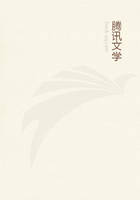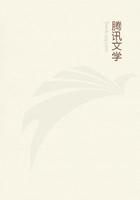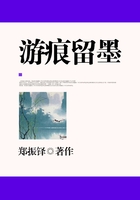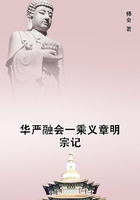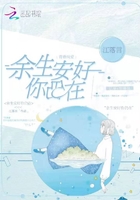Petrarch was not only a distinguished geographer--the first map of Italy is said to have been drawn by his direction--and not only a reproducer of the sayings of the ancients, but felt himself the influence of natural beauty.The enjoyment of nature is, for him, the favorite accompaniment of intellectual pursuits; it was to combine the two that he lived in learned retirement at Vaucluse and elsewhere, that he from time to time fled from the world and from his age.We should do him wrong by inferring from his weak and undeveloped power of describing natural scenery that he did not feel it deeply.His picture, for instance, of the lovely Gulf of Spezia and Porto Venere, which he inserts at the end of the sixth book of the 'Africa,' for the reason that none of the ancients or moderns had sung of it, is no more than a simple enumeration, but Petrarch is also conscious of the beauty of rock scenery, and is perfectly able to distinguish the picturesqueness from the utility of nature.During his stay among the woods of Reggio, the sudden sight of an impressive landscape so affected him that he resumed a poem which he had long laid aside.But the deep- est impression of all was made upon him by the ascent of Mont Ventoux, near Avignon.An indefinable longing for a distant panorama grew stronger and stronger in him, till at length the accidental sight of a passage in Livy, where King Philip, the enemy of Rome, ascends the Haemus, decided him.He thought that what was not blamed in a greyheaded monarch, might well be _excused _in a young man of private station.The ascent of a mountain for its own sake was unheard of, and there could be no thought of the companionship of friends or acquaintances.
Petrarch took with him only his younger brother and two country people from the last place where he halted.At the foot of the mountain an old herdsman besought him to turn back, saying that he himself had attempted to climb it fifty years before, and had brought home nothing but repentance, broken bones, and torn clothes, and that neither before nor after had anyone ventured to do the same.Nevertheless, they struggled forward and upward, till the clouds lay beneath their feet, and at last they reached the top.A description of the view from the summit would be looked for in vain, not because the poet was insensible to it, but, on the contrary, because the impression was too overwhelming.His whole past life, with all its follies, rose before his mind; he remembered that ten years ago that day he had quitted Bologna a young man, and turned a longing gaze towards his native country; he opened a book which then was his constant companion, the 'Confessions' of St.Augustine, and his eye fell on the passage in the tenth chapter, 'and men go forth, and admire lofty mountains and broad seas, and roaring torrents, and the ocean, and the course of the stars, and forget their own selves while doing so.' His brother, to whom he read these words, could not understand why he closed the book and said no more.
Some decades later, about 1360, Fazio degli Uberti describes, in his rhyming geography, the wide panorama from the mountains of Auvergne, with the interest, it is true, of the geographer and antiquarian only, but still showing clearly that he himself had seen it.He must, however, have ascended far higher peaks, since he is familiar with facts which only occur at a height of 10,000 feet or more above the sea--mountain-sickness and its accompaniments--of which his imaginary comrade Solinus tries to cure him with a sponge dipped in an essence.
The ascents of Parnassus and Olympus, of which he speaks, are perhaps only fictions.
In the fifteenth century, the great masters of the Flemish school, Hubert and Jan van Eyck, suddenly lifted the veil from nature.Their landscapes are not merely the fruit of an endeavor to reflect the real world in art, but have, even if expressed conventionally, a certain poetical meaning--in short, a soul.Their influence on the whole art of the West is undeniable, and extended to the landscape-painting of the Italians, but without preventing the characteristic interest of the Italian eye for nature from finding its own expression.
On this point, as in the scientific description of nature, Aeneas Sylvius is again one of the most weighty voices of his time.Even if we grant the justice of all that has been said against his character, we must nevertheless admit that in few other men was the picture of the age and its culture so fully reflected, and that few came nearer to the normal type of the men of the early Renaissance.It may be added parenthetically, that even in respect to his moral character he will not be fairly judged, if we listen solely to the complaints of the German Church, which his fickleness helped to balk of the Council it so ardently desired.
He here claims our attention as the first who not only enjoyed the magnificence of the Italian landscape, but described it with enthusiasm down to its minutest details.The ecclesiastical State and the south of Tuscany--his native home--he knew thoroughly, and after he became Pope he spent his leisure during the favourable season chiefly in excursions to the country.Then at last the gouty man was rich enough to have himself carried in a litter across the mountains and valleys; and when we compare his enjoyments with those of the Popes who succeeded him, Pius, whose chief delight was in nature, antiquity, and simple, but noble, architecture, appears almost a saint.In the elegant and flowing Latin of his 'Commentaries' he freely tells us of his happiness.

